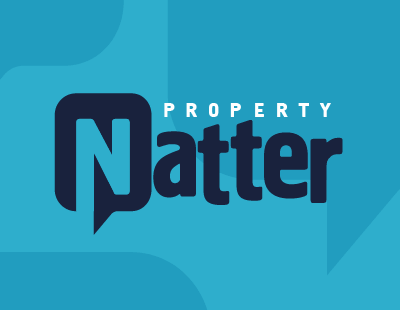Go back a hundred years and property transactions were a much simpler affair. A group of people could get together in a room and exchange physical cash, deeds, and contracts in person, completing a property deal in a fraction of the time it does today.
Whilst computers, software, the internet and apps have made our lives easier in lots of ways, what they haven’t been able to do so far is make the process of buying and selling easier than it used to be. There’s lots of reasons why it’s harder today, of course, but there’s also a central one to do with the technology.
The technology we use today has been designed and built in pockets, each time brought in and adapted to digitise some individual area of the property transaction. This means that whilst many parts of the process are now digitised, what we don’t have is an integrated, unified digital experience.
The mix of digital systems and analogue processes we have today creates the disjointed and opaque process we experience as professionals, buyers or sellers, one where information is in many little buckets, and often needs finding, sharing or even recreating. Ironically, it has in some ways made each transaction more complex than it was before, contributing to the very long time it now takes to move home, and how many property deals ultimately fall through.
In this article, we’re going to look at what a future truly digital property market will look like. One where businesses and users experience work in a shared space not unlike the physical room of a hundred years ago. One where there is no need to log in to separate systems, no need to re-identify or re-key information, no need to repeat the same processes with different parties. A market with a common view of truth. It's a vision I believe is entirely achievable.
Let's look at what that will look like.
Open and accessible data
Getting a property deal done is a lot about finding, sharing and processing information. It’s no surprise that many of the pain points of buying and selling property and the issues we face – the time it takes, the lack of control, the lack of visibility, sharing the same information multiple times to multiple parties – come down to the fact that the data in the market today is fragmented. Everyone already has the information, yet it cannot be easily accessed or shared.
In a digital property market, the data is what the Government Data Strategy calls “FAIR”: Findable, Accessible, Interoperable, Reusable. That just means that wherever it is stored, whatever system someone uses, those with permission can get the information they need easily. In a digital property market, the right data will be available to the right people, in the right format, at the right time.
Seamlessly shareable digital identification
Currently, how buyers and sellers have to prove their identity leaves a lot to be desired. We’ve stumbled into a highly repetitive process where different digital ID providers work with different professionals meaning the same checks are performed again and again. And if that’s not bad enough, consumers often find themselves wading through a labyrinth of scanned documents where the output of the process is a verified PDF - something that is digital in name only.
In a digital property market, we will see an end to the repetition. The tech already exists to break the cycle. Buyers and sellers will be able to verify their identities once and share it with whoever needs it.
Tokenised money and titles
At the point of completion, despite the widespread use of online banking, moving money remains risky, complex, manual and prone to errors - we’ve all heard the horror stories of fraud taking place at the eleventh hour. Updating the register at HMLR is far from automated either, adding risk and potential delay at the end of the process.
In a digital property market, money and titles will be tokenised, meaning both money and the property deed can be represented as blockchain-based tokens in a completely digital format. This means that the once manually intensive aspects of completion will instead be secure, automated and programable. You will know down to the minute when money and ownership would be transferred.
Smart(er) contracts
Getting a property deal over the line takes a lot of time, and much of that is spent drafting and executing the contract. It’s no secret that while many professionals involved use the best technology at their disposal, there are still those who persist with paper files and sending snail mail back and forth. In addition, with no single source of truth no one has visibility over the whole process. This means constant human intervention is needed to chase, share, and check information.
In a digital property market, instead of being paper-based, contracts would be smart. Smart contracts run on blockchain where every step from start to finish is documented and verified within the smart contract itself. They will also be self-executing meaning when a particular condition is met a following step is automatically triggered.
A process that typically takes weeks will instead take place in seconds.
Orchestration – the digital backbone
Everything we’ve mentioned so far is equally important for a digital property market, however, they are not enough on their own. To create a digital property market, one last piece of the puzzle is needed: orchestration.
The property market needs a market-wide infrastructure, an intelligent backbone that connects systems and orchestrates the exchange of data. With an orchestration layer, there will no longer be a need to log into separate systems, or re-identify or re-key information, and no need to repeat the same processes with different parties. Orchestration will connect the different business processes together in a shared digital interface.
Making the digital property market a reality
At Coadjute, we are building this vision of the future.
With the Coadjute Network we have created the crucial orchestration layer and are laying the foundations for all the other aspects required. Working with industry partners and forward-looking customers, we are turning the dream of a digital property market into reality.
It is amazing to think that a hundred years ago people could meet one place and conduct a property deal with ease. With the arrival of the digital property market, it’s perhaps even more incredible that we are on the brink of an age where we can, at last, do that again.
Read our full series on the digital property market




.png)







.jpg)
.jpg)






.png)



Join the conversation
Jump to latest comment and add your reply
Wonderfully explained Dan
Please login to comment